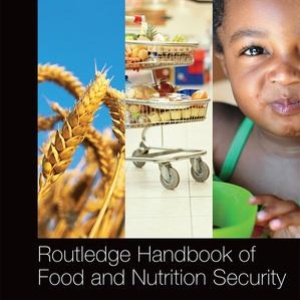
The concept of food and nutrition security has evolved and risen to the top of the international policy agenda over the last decade. Yet it is a complex and multi-faceted issue, requiring a broad and inter-disciplinary perspective for full understanding.
This Handbook represents the most comprehensive compilation of our current knowledge of food and nutrition security from a global perspective. It is organized to reflect the wide scope of the contents, its four sections corresponding to the accepted current definitional frameworks prevailing in the work of multilateral agencies and mainstream scholarship.
The first section addresses the struggles and progression of ideas and debates about the subject in recent years. The other sections focus on three key themes: how food has been, is and should be made available, including by improvements in agricultural productivity; the ways in which politico-economic and social arenas have shaped access to food; and the effects of food and nutrition systems in addressing human health, known as food utilisation. Overall, the volume synthesizes a vast field of information drawn from agriculture, soil science, climatology, economics, sociology, human and physical geography, the nutrition and health sciences, environmental science and development studies.
Citation
Pritchard, B., Ortiz, R. and Shekar, M. (eds) (2016). Routledge Handbook of Food and Nutrition Security. Routledge, London and New York.
For further details see here.







Post a new comment »